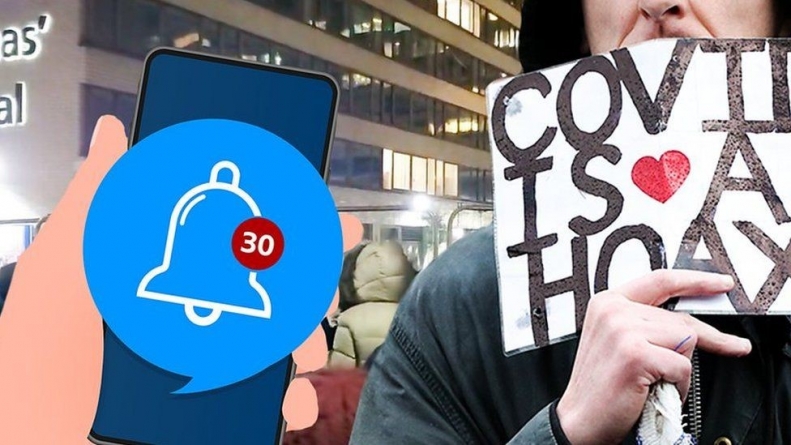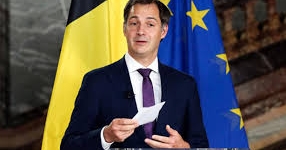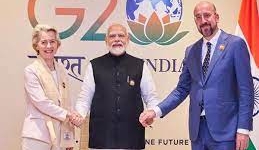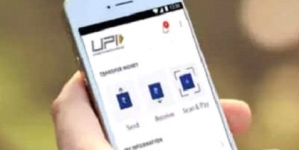-
WASHINGTON: India Now Second-Largest Source Country For New Citizens In US- Report - 1 day ago
-
LONDON: Indian-Origin Teen In UK Gets “Life-Changing” Cancer Treatment - April 25, 2024
-
SILICON VALLEY: All About Pavan Davuluri, New Head Of Microsoft Windows - April 25, 2024
-
LONDON: UK’s India Gate To Commemorate Role Of Indian Soldiers From World Wars - April 24, 2024
-
HARARE: Shri Bramha Kumar appointed as the next Ambassador of India to the Republic of Zimbabwe - April 23, 2024
-
LONDON: Indian-Origin Principal Wins UK Legal Challenge Over School Prayer Ban - April 23, 2024
-
TORONTO: Indian-Origin Doctor Needs ₹ 2 Crore For Legal Fees. Elon Musk Responds - April 22, 2024
-
KINSHASA: India-Democratic Republic of Congo Foreign Office Consultations - April 21, 2024
-
LONDON: UK Court Allows Sale Of Nirav Modi’s Luxury London Apartment - April 21, 2024
-
TEHRAN: Travel advisory for Iran and Israel - April 20, 2024
BRUSSELS: Covid: Scientists targeted with abuse during pandemic
BRUSSELS: The Covid-19 pandemic has made
celebrities out of scientists, who have graced the daily news headlines and
gained large social-media followings.
But this
rise in prominence has come with online abuse and even physical harassment.
The
journal Nature surveyed scientists, who described receiving threats of violence
after media appearances.
Discussions
about vaccines or the drug ivermectin were common triggers for harassment.
In the
past, scientists have faced abuse when discussing climate change or previous vaccination
campaigns.
Physically attacked
The
self-selecting survey of 321 people working in fields relevant to Covid found
more than a fifth had received threats of physical or sexual violence.
While
this is not representative of all scientists and cannot accurately reveal the
scale of abuse, it provides a glimpse into some of the personal experiences of
those who came into the public eye to give information during the global
disease outbreak.
Six
people who responded to the questionnaire said they had been physically
attacked following media appearances.
Some of
the more extreme cases have been widely reported. Leading Belgian virologist Prof Marc Van Ranst ended up in a safehouse after being targeted by a
far-right trained sniper (since found dead) who despised lockdowns and
threatened to kill health professionals.
The UK’s chief medical adviser, Prof Chris Whitty, was assaulted in a park by a 24-year-old
estate agent, while two prominent German scientists were posted bottles of
clear liquid labelled “positive” and a note telling them to drink it.
Media caption, Covid: NHS doctor
‘receives 20 to 30 abusive messages a day’
US
infectious-diseases doctor Krutika Kuppalli, who gave national media interviews
and testified to a congressional committee, told Nature she had received a
death threat via a phone call to her home.
Australian
virologist Danielle Anderson, who worked at the Wuhan Institute for Virology
and was critical of the theory it might be where the virus had escaped from,
received an email telling her to “eat a bat and die”.
Swinging coffins
Prof
Andrew Hill wrote a positive review of anti-parasite drug ivermectin for treating Covid but reversed his stance once he
discovered data he had been basing his conclusions on was untrustworthy.
Current
available evidence suggests ivermectin is unlikely to be very effective for
Covid – but Prof Hill has received a barrage of abuse, including accusing him
of genocide, which has driven him off social media.
“I
was sent images of Nazi war criminals hanging from lampposts, voodoo images of
swinging coffins, threats that my family were not safe, that we would all burn
in hell,” he told BBC News.
“This
was happening most days – I opened my laptop in the morning to be confronted
with a sea of hate and disturbing threats.
“There
were also threats to my scientific reputation on email.
“I
know many other scientists who have been threatened and abused in similar ways
after promoting vaccination or questioning the benefits of unproven treatments
like ivermectin.”
Being harassed
University
of Southampton senior research fellow in global health Dr Michael Head said
there had been “a huge amount of abuse aimed at everyone contributing to
the pandemic response… includ[ing] NHS front-line staff”.
University
College London behavioural scientist Prof Susan Michie said
“disturbing” online abuse would happen “most intensively after
media engagements and especially after those that address restrictions to
social mixing ,the wearing of face masks or vaccination”.
Other
scientists surveyed mentioned emails being sent to their employers or their
professional reputations being challenged.
But of
those being harassed on their own social media, almost half said they did not
tell their employer.
The
Nature survey also found those targeted with the most frequent harassment were
most likely to say it had affected their willingness to give media interviews
in the future.
Fiona
Fox, chief executive of the UK Science Media Centre, which provides scientific
comment and briefings to journalists, said it was a “great loss if a
scientist who was engaging with the media, sharing their expertise, is taken
out of a public debate at a time when we’ve never needed them so badly”.
























